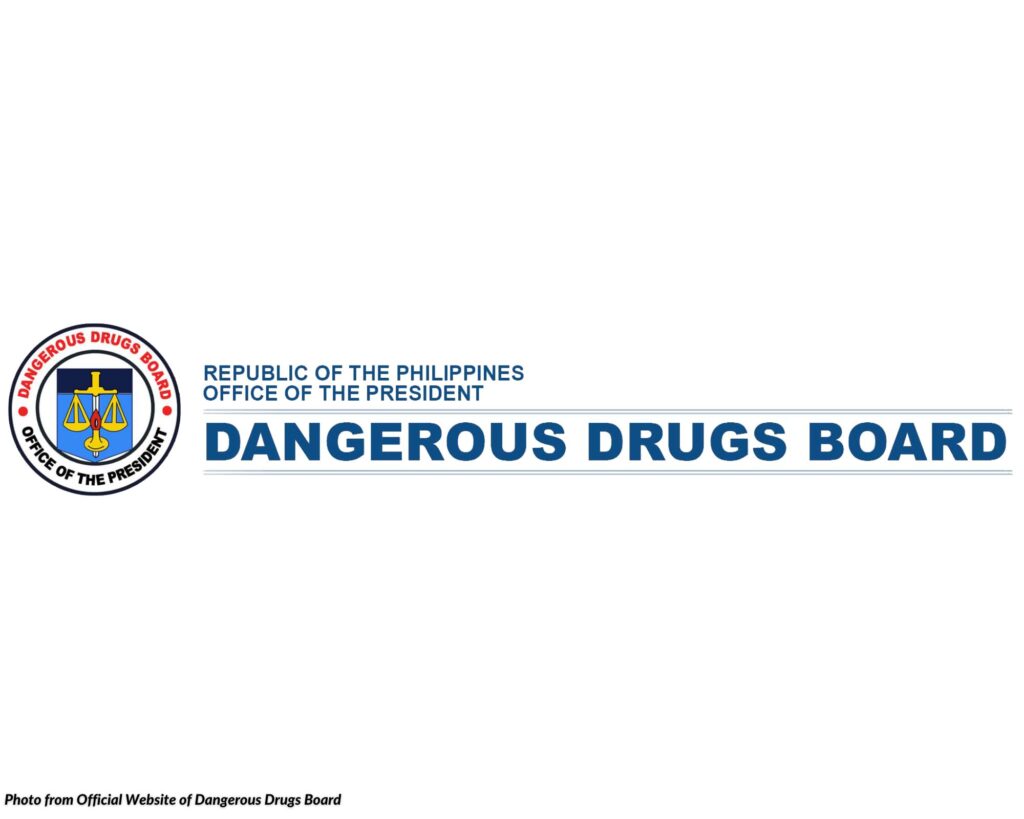
Photo from Official Website of Dangerous Drugs Board
The following post does not create a lawyer-client relationship between Alburo Alburo and Associates Law Offices (or any of its lawyers) and the reader. It is still best for you to engage the services of a lawyer or you may directly contact and consult Alburo Alburo and Associates Law Offices to address your specific legal concerns, if there is any.
Also, the matters contained in the following were written in accordance with the law, rules, and jurisprudence prevailing at the time of writing and posting, and do not include any future developments on the subject matter under discussion.
AT A GLANCE:
Established on November 14, 1972, the Dangerous Drugs Board was tasked with serving as the principal policy-making and coordinating agency for all issues related to drug abuse. This encompassed areas such as law enforcement, treatment and rehabilitation, prevention, training and information dissemination, as well as research and statistics.
(Pursuant to Republic Act No. 6425 or the Dangerous Drugs Act of 1972)
The law says:
Section 36 of Republic Act No. 6425. Powers and Duties of the Board. — The Board shall:
a) Promulgate such rules and regulations as may be necessary to carry out the purposes of this Act, including the manner of safekeeping, disposition, burning or condemnation of dangerous drugs tinder its charge and custody, and prescribe administrative remedies or sanctions for the violation of such rules and regulations;
b) Take charge and custody of all dangerous drugs seized, confiscated by or surrendered to any national provincial or local law enforcement agency, if no longer needed for purposes of evidence in court;
c) Develop educational programs based on factual information and disseminate the same to the general public, for which purpose the Board shall endeavor to make the genera! public aware of the hazards of dangerous drugs by providing, among others, literature, films, displays or advertisements, and by coordinating with all institutions of learning as well as with all national and local law enforcement agencies in planning and conducting its educational campaign programs;
d) Provide law enforcement officers, school authorities and personnel of centers with special training in dangerous drugs control;
e) Conduct scientific, clinical, social, psychological, physical and biological researches on dangerous drugs;
f) Draw up, in consultation and in coordination with the various agencies involved in drugs control, treatment and rehabilitation, both public and private a national treatment and rehabilitation program for drug dependents; and call upon any department, office, bureau, institution or agency of the Government to render such assistance as it may require, or coordinate with it or with other such entities to carry out such program as well as such other activities as it may undertake pursuant to the provisions of this Act;
g) Receive all donations for the purpose of carrying out the objectives of this Act;
h) Subject to the civil service law and the rules and regulations issued thereunder, appoint such technical, administrative and other personnel as may be necessary for the effective implementation of this Act;
i) Receive, gather, collate and evaluate all information on the importation, exportation, production, manufacture, sale, stocks, seizures of and the estimated need for dangerous drugs, for which purpose the Board may require from any official, instrumentality or agency of the Government or any private persons or enterprises dealing in, or engaged in activities having to do with dangerous drugs such data or information as it may need to implement this Act;
j) Relay information regarding any violation of this Act to law enforcement agencies to effect the apprehension of offenders and the confiscation of dangerous drugs and transmit evidence to the proper court;
k) Conduct eradication programs to destroy wild or illicit growth of plants from which dangerous drugs may be extracted;
l) Authorize, pursuant to the provisions of this Act, the importation, distribution, prescription, dispensing and sale of, and other lawful acts in connection with, dangerous drugs of such kind and quantity as it may deem necessary according to the medical and research needs of the country, which authorization shall be required by the Commissioner of Internal Revenue as a basis for the issuance of licenses and permits for such purposes in accordance with Republic Act No. 953;
m) Encourage, assist and accredit private centers, promulgating rules and regulations setting minimum standards for their accreditation to assure their competence, integrity and stability;
n) Prescribe and promulgate rules and regulations governing the establishment of such centers as it may deem necessary, after conducting a feasibility study thereof;
o) Provide appropriate rewards to informers who are instrumental in the discovery and seizure of dangerous drugs and in the apprehension of violators of this Act;
p) Gather and prepare detailed statistics on the importation, exportation, manufacture, stocks, seizures of and estimated need for dangerous drugs and such other statistical data on said drugs as may be periodically required by the United Nations Narcotics Drug Commission, the World Health Organization and other international organizations in consonance with international commitments.
Read also: International Day Against Drug Abuse and Illicit Trafficking of Drugs
Alburo Alburo and Associates Law Offices specializes in business law and labor law consulting. For inquiries regarding taxation and taxpayer’s remedies, you may reach us at info@alburolaw.com, or dial us at (02)7745-4391/0917-5772207.
All rights reserved.


